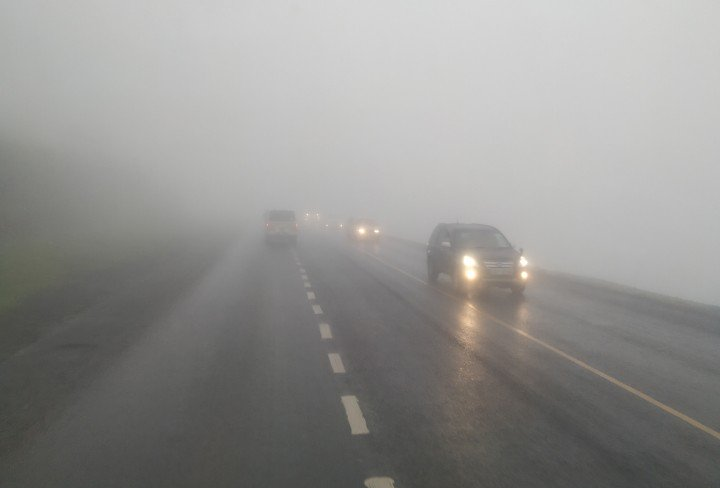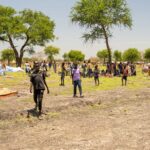The month of July marks the peak of the cold season in the Highlands East of the Rift Valley and Nairobi County.
The Kenya Meteorological Department says temperature forecast for July 2023 indicates that “this zone, as well as parts of the Southeastern lowlands (parts of Kajiado) are expected to experience cool temperatures.”
The statement signed by the Director of Meteorological Department Dr. David Gikungu says some of the days within the month may experience maximum temperatures below 18 degrees Celsius and minimum temperatures of below 10 degrees Celsius.
“Most of the northern sector is likely to experience high temperatures above 30 degrees Celsius, except over Marsabit and parts of Isiolo counties where temperatures are expected to be moderate,” says Dr. Gikungu.

He says the rest of the country is likely to experience moderate temperatures between 20 degrees Celsius and 30 degrees Celsius which he notes are a lot warmer, “going by the long term mean for the month of July.”
Among the potential impacts, the weatherman says is the fog formation in the areas that are expected to experience cold and cloudy conditions may pose a danger to motorists due to low visibility.
“Care should be taken while driving in these areas especially along the Nairobi to Naivasha Highway and particularly on the Kikuyu-Kinungi stretch, light rains and drizzles may also cause roads to be slippery,” he says and adds, “All are advised to take utmost care to minimize accidents that may result from such weather conditions.”
Dr. Gikungu is warning that fog may occasionally disrupt operations at the Wilson Airport and Jomo Kenyatta International Airports.
The forecast by the Kenya Meteorological Department says the cool and chilly conditions may cause cases of respiratory diseases such as asthma, pneumonia, flu, and the common cold are likely to increase in areas such as Nairobi, the Highlands East of the Rift Valley, parts of the Central and South Rift Valley, and parts of the Highlands West of the Rift Valley.
To avoid contracting diseases, he says, it is advisable to dress warmly and to follow the advice of the Health Authorities. The Weatherman is also advising the public to avoid using charcoal jikos in poorly ventilated houses “because they emit carbon monoxide gas, which can kill if inhaled.
The near to below average rainfall expected over the Highlands West of the Rift Valley, Lake Victoria Basin, Central and South Rift Valley may be conducive for harvesting. Farmers in these areas are advised to take advantage of the dry spells expected within the month to harvest their produce and reduce post-harvest losses.
Dr. Gikungu is cautioning that there could be a shortage of food, water, pasture and browse in counties that are in drought alert phase like Taita Taveta and Kitui counties owing to the dry conditions expected. “There may be incidences of crop damage due to frost in parts expected to experience low temperatures.
The weatherman is warning of cases of lightning strikes in areas over the Lake Victoria Basin and Highlands West of the Rift Valley especially in Kisii, Kisumu, Nandi, Bungoma around Mt. Elgon areas, and Kakamega Counties. “The public is advised not to shelter near metallic structures or under trees to prevent loss of life,” he says.
Water availability over the ASAL areas may decline due to the dry weather conditions expected in these areas. Residents are advised to use the available water sparingly and embrace water conservation practices to ensure their water needs are met during the month.
By Judith Akolo





